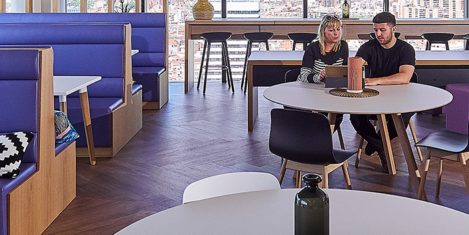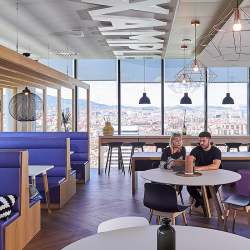October 2, 2018
Flexible and part-time workers outperform full-time colleagues
 A new report from the charity Working Families assessing the flexible, agile, and family-friendly working policy of its employer members claims that flexible and part-time workers appear to outperform their full time colleagues. The 2018 Top Employers for Working Families Benchmark report captures the experience of 630,000 employees across some of the UK’s leading public, private, and third sector organisations. The report was launched to mark the National Work-life Week, Working Families’ annual campaign to encourage employers and employees to talk about wellbeing at work and work-life balance.
A new report from the charity Working Families assessing the flexible, agile, and family-friendly working policy of its employer members claims that flexible and part-time workers appear to outperform their full time colleagues. The 2018 Top Employers for Working Families Benchmark report captures the experience of 630,000 employees across some of the UK’s leading public, private, and third sector organisations. The report was launched to mark the National Work-life Week, Working Families’ annual campaign to encourage employers and employees to talk about wellbeing at work and work-life balance.










 We reported
We reported 


 Most organisations already offer some sort of flexible working and over half of employees now ask to work flexibly, a new survey from XpertHR research has claimed. One in 12 organisations (8.1 percent) reported that all employees worked flexibly, with employers attributing the rise to a more supportive workplace culture and the impact of recent legal changes. The survey found that more than half (55.9 percent) had seen an increase in flexible working requests over the past two years. Three out of four believed that this was due to changes in workplace culture in recent years, attributable in part to a change in the law in 2014 that extended the right to request flexible working to all employees with at least 26 weeks’ service. Flexible working goes across the board, and includes part-time working, variable start and finish times, home-working and other options.
Most organisations already offer some sort of flexible working and over half of employees now ask to work flexibly, a new survey from XpertHR research has claimed. One in 12 organisations (8.1 percent) reported that all employees worked flexibly, with employers attributing the rise to a more supportive workplace culture and the impact of recent legal changes. The survey found that more than half (55.9 percent) had seen an increase in flexible working requests over the past two years. Three out of four believed that this was due to changes in workplace culture in recent years, attributable in part to a change in the law in 2014 that extended the right to request flexible working to all employees with at least 26 weeks’ service. Flexible working goes across the board, and includes part-time working, variable start and finish times, home-working and other options.



















August 15, 2018
The global problem of overwork and the right to disconnect
by Aki Stamatis • Comment, Flexible working, Technology, Wellbeing
Anybody who doubts the importance of work and working culture to people’s lives should look at the resistance to President Macron’s mooted changes to labour laws. His attempts to modernise and liberalise French workplace legislation marked the first cracks in his reputation and brought millions of French workers to the streets as part of a national strike.However, one change to French legislation that met with little or no resistance earlier this year was a new right to avoid work emails outside working hours. Under the legislation, firms with more than 50 workers will be obliged to draw up a charter of good conduct, setting out the hours when staff are not supposed to send or respond to emails as they seek a right to disconnect.
More →